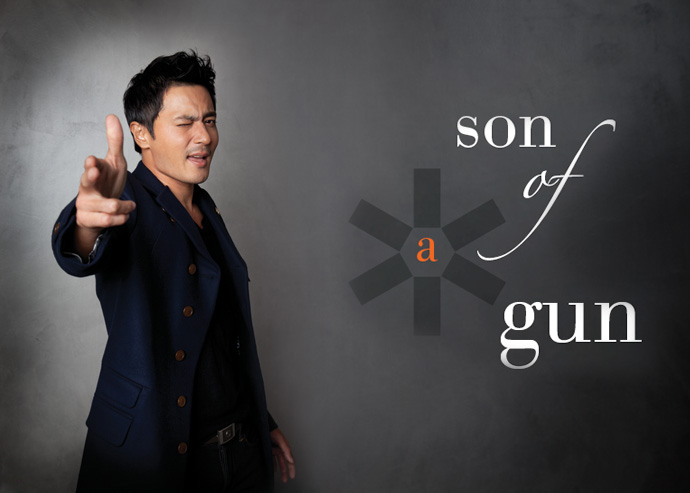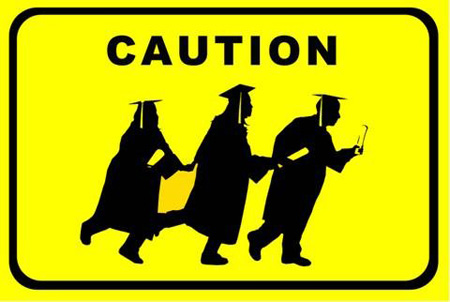South Korea’s leading man, Jang Dong-gun, makes his Hollywood debut in this month’s fantasy action film, The Warrior’s Way, out Friday, Dec. 3rd.
by Jaeki Cho
photographs by Shane Sato
styled by Kwon Hye Mi hair and make-up by Yang Hyoung Shim
He’s pretty much the Brad Pitt of South Korea—if not Asia. Similar to the American culture of celebrity worship, in South Korea, his marriage to actress/model Ko So-young in May ended the media hysteria surrounding their friendship and relationship. But now, more media attention is geared towards his newborn son (sound familiar?).
But unlike American fans, Asian groupies sing to their celebs. On March 8, 2007, a stadium full of fans from all throughout Asia sang in unison at the Nippon Budokan arena in Tokyo. This was not a concert. These legions of women were singing “Happy Birthday” to Jang Dong-gun. The South Korean actor looked over this somewhat cultish gathering with poise. He thanked the audience politely in Korean, Japanese and Mandarin, then gazed at the masses with charismatic charm. The audience went into hysterics. Some even broke into tears.
While Jang, now 38, is not the only Korean export to obtain a messiah-like status across Asia (actors Lee Byung-hun and Bae Yong-joon boast similar, if not larger followings), he certainly has the most diverse résumé. Since his debut in 1993, the actor has starred in two Korean box-office record setters—Friend (2001), which back then was the highest grossing Korean film of all time, and Taegukgi (2004), a harrowing film about family ties and the Korean War. The former, in which the Seoul-born-and-based Jang played a hotheaded gangster, is often regarded as his breakout performance, shattering his previous image as the romantic lead in small-screen dramas, while the latter placed him in the echelon of Korea’s acting greats, earning him the prestigious Blue Dragon Film Award (South Korea’s equivalent to the Oscars) for Best Leading Actor. Having already achieved stardom as a film actor in Korea, Jang expanded his homegrown success into the international market as the leading star in Chen Kaige’s Wuxia romance The Promise. This elevated his career into a whole different realm and placed him at the forefront of the Korean Wave.
 Photo Courtesy of Relativity Media
Photo Courtesy of Relativity Media
Last month, Jang was in Los Angeles to promote his Hollywood debut film, The Warrior’s Way (Relativity Media), directed and written by Sngmoo Lee. The English language action film—in theaters now—might unfairly be labeled as another disposable martial arts flick starring, yet again, an actor acclaimed in Asia, but new to Hollywood. However, the film stands out because of the talent involved; among them, actors Geoffrey Rush, Kate Bosworth and Danny Huston, and producer Barrie Osborne (The Lord of the Rings series, The Matrix).
In the film, Jang plays a solitary warrior who becomes the most powerful swordsman in Asia. When he fails to kill the last survivor of the rival clan’s bloodline, he decides to flee to a deserted town full of circus members, where he quickly learns new qualities of life beyond bloodshed. Predictably, trouble soon ensues, followed by an explosion of violence that prevents the warrior from scaping his past. With genre-bending elements reminiscent of the works of Quentin Tarantino, the film features a vagabond plot commonly found in Westerns—only with an Asian swordsman instead of a cowboy at the center.
A few weeks shy of the film’s release, Jang spent the afternoon with KoreAm for a photo shoot in Los Angeles. Despite his A-list celebrity status back home, which means endless paparazzi pursuits and breathless reports on his various outfits, Jang carries himself without any superstar haughtiness. He’s a guy’s guy after all (he’s an active member of an all-actor baseball team, and regularly attends a golf gathering headed by fellow actor Ahn Sung-ki). With his modest and unassuming demeanor—not to mention that undeniably handsome face—it’s easy to understand his immense popularity across generations of women throughout the Asian continent. But will that translate over to U.S. audiences? Time will tell, but we wouldn’t bet against it.
Here, Jang shares his thoughts (translated from Korean) on his new film, his favorite characters and the pressure of being dubbed, with his wife, “South Korea’s Brangelina.”
KoreAm: What’s it like being a newlywed?
Jang Dong-gun: Lately, I’ve been caught up with the shooting of an upcoming [South Korean] film called My Way. I just recently had my first child, but I haven’t been home for a long time. I feel sorry for my wife, and I really miss my son.
KoreAm: There’s been a lot of media attention on your newborn. Are you planning on revealing him to the public?
Jang Dong-gun: My wife and I don’t have any plans on showing our child to the public. Just because his mother and father are famous, I don’t think there’s an obligation for the child to be publicly revealed. I don’t know what kind of influence it’ll have on him. It’s a very touchy matter. We’ll have to understand what kind of traits he has, and hopefully he can be someone who’s able to help other people.
KoreAm: What are your thoughts on being described, with your wife, as “South Korea’s Brangelina”?
Jang Dong-gun: [Laughs.] I’m not really a fan of that label. It’s a big claim, and I feel a sense of responsibility to live up to the title.
KoreAm: Earlier in your career, you were often labeled as an actor more acknowledged for your looks than your acting. Did you make any attempts to shake that rep?
Jang Dong-gun: I actually did. A lot. I specifically chose roles that didn’t require good looks and roles that were challenging. Looking back, though, I spent too much time worrying about something that was trivial.
KoreAm: From all the films you’ve done so far, what do you consider your best work?
Jang Dong-gun: Friend or Taegukgi.
KoreAm: Why’s that?
Jang Dong-gun: For Friend, the audience saw a character they didn’t expect from me. I enjoyed providing that twist, so I feel very close to that character. And Taegukgi’s role required me to play someone who was constantly transforming. It also helped me to achieve one of my goals as an actor in Korea—it earned me a Blue Dragon Film Award. So I definitely feel a certain way about that film.
KoreAm: Your films have been distributed in the United States before, but this is your first American role. How did you get involved with this project and director Sngmoo Lee?
Jang Dong-gun: Director Lee studied film at New York University. He works as a film professor at Korean National University of Arts in Seoul. I was briefly a student there, too. The director sent the synopsis to the States about eight years ago, and eventually the studios green-lit the film. At the time, I was actually talking to the director about another Korean project. But as soon as he received the message from the American producers, he wanted me to participate in this film.
KoreAm: Was the atmosphere on set different than your experiences in Korea?
Jang Dong-gun: The whole filming process was very organized. For instance, there’s a baby character in the film, and the amount of hours she can be on set is predetermined. No exceptions. In Korea, however, the time set to start shooting might get pushed back, or filming might get delayed. [In the United States, it seems] those types of things are prevented. A second unit shoots the scenes that don’t feature main characters—for instance, the explosion scenes—while the main production goes on. The director comes along later and approves the scenes. Overall, the production process is speedy and logical. The production doesn’t get delayed, and I encountered far fewer difficulties.
KoreAm: What were your thoughts about the involvement of notables such as Barrie Osborne and Geoffrey Rush?
Jang Dong-gun: Barrie Osborne was a crucial figure who helped to green-light the film, and even in Korea he’s well known for his past projects. I wanted to participate after reading the synopsis, and hearing about Barrie Osborne’s involvement only reaffirmed my decision. Geoffrey Rush joined later on; he’s an amazing actor with so much accomplished, and I feel honored to share the screen with him.
KoreAm: Are you planning to put more focus on the American screen?
Jang Dong-gun: Unlike what the media claim, I personally don’t put too much emphasis on trying to tap into the American market. I’ve done films in the past that were international collaborations. And I didn’t specifically choose The Warrior’s Way because it was an American film. I liked the script. It just so happened that it was a Hollywood film. Even if it doesn’t become a box office hit, I know it’s not the end. Whether it’s a Korean film or a Hollywood film, I only pick a role if I like the synopsis.
KoreAm: Are you satisfied with the film as a whole?
Jang Dong-gun: For the most part. Initially, both the director and I wanted this film to be more playful, and catered to a niche crowd. But as the budget grew bigger, it became a film that needed to be targeted towards a wider audience.
KoreAm: Last year’s Ninja Assassin touched on a similar plot: A lone warrior, played by pop star Rain, fighting against his past. Are you worried that Korean actors will continually get typecast in such roles?
Jang Dong-gun: I’m very aware that many people feel that way, but I’m not really worried about it. We’re at a stage where Korean actors are getting introduced to the American public. While actors like Jackie Chan and Jet Li were famous action stars in Asia before they were out in America, actors like Rain, Lee Byung-hun and myself didn’t mold our careers in Asia with action films. I believe we’re presenting ourselves not as action stars, but actors who are capable of doing action films on top of other genres.









